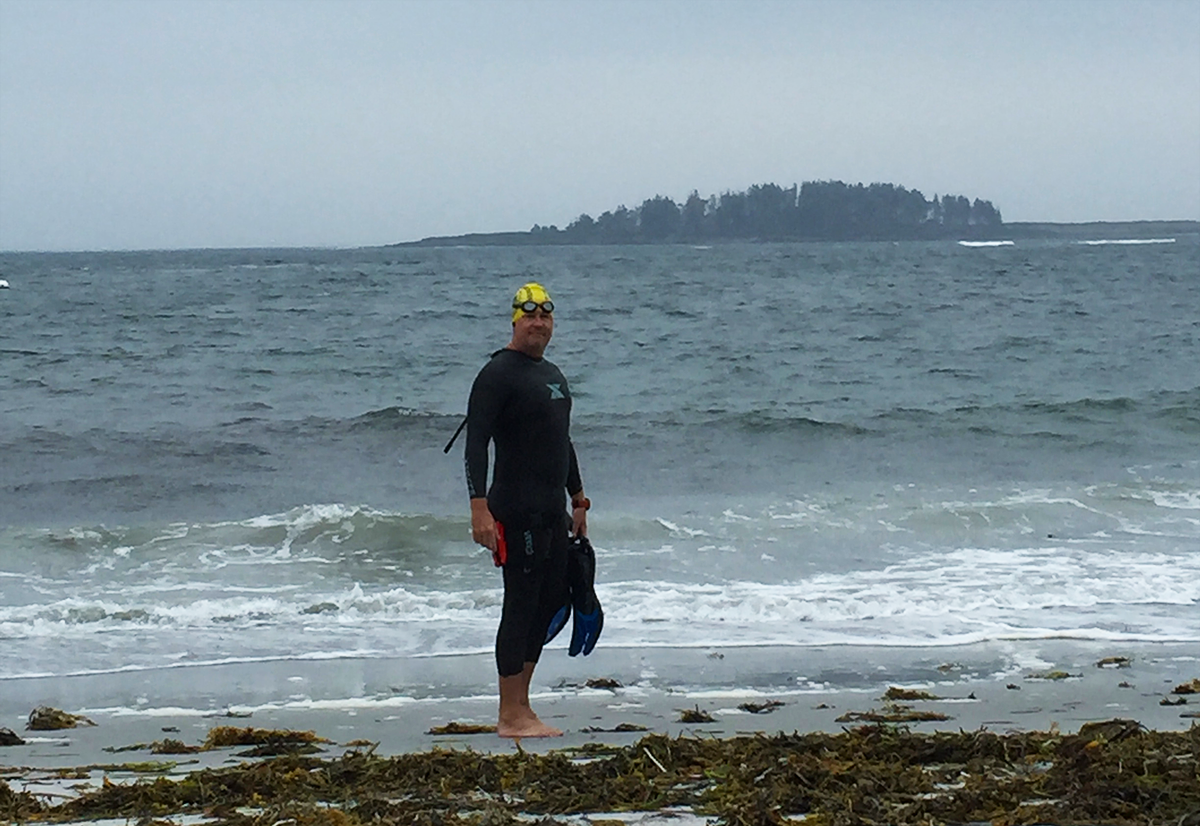This Local Man Is Swimming the English Channel for Dana-Farber

Mark Scribner/Photo provided.
As Mark Scribner neared his 40th birthday nine years ago, he had just become a father. He realized he had let himself go a bit, and decided to start the next chapter of his life on a healthier foot.
He started running, and, like a modern day Forrest Gump, just didn’t stop.
Since then, Scribner has completed a handful of marathons, roughly 17 triathlons, countless distance runs, and several open water swims, all while working full-time in finance. None of that, however, compares to his latest feat: training to swim the English Channel later this month.
“I’m anxious to see what I’m made of,” he says. “There’s a saying [in endurance events]: ‘Stuff can and will go wrong. It’s how you deal with it that makes a difference.’ I want to see, how hard can I push myself before I cry Uncle?”
The swim has long been a bucket list item for Scribner, but his friend Shawn Darrer, who underwent a stem cell transplant at Dana-Farber Cancer Institute, motivated him to turn it into reality.
In awe of what Darrer “had to endure every day after his stem cell treatment to stay healthy,” Scribner decided to finally complete his swim—and use it to raise $100,000 for the Graft Versus Host Disease & Lymphoma Research Fund, which supports the work of Darrer’s doctor, Joseph Antin.

Scribner’s swim cap/Photo provided.
This isn’t the first time Scribner has found motivation in family and friends. He first ran the Boston Marathon in memory of his mother, who died of colon cancer. Today, he often trains and competes in the name of a friend in the athletic community, and raises money for a cause close to that person. It helps, he says, to have someone with whom he can share progress.
He’ll need that extra push to cross the roughly 21-mile-long English Channel, which stretches from England to France.
Scribner says it isn’t the distance that stymies most people, though—it’s the temperature. When Scribner embarks on September 23, the water will be about 64 degrees. For context, humans typically last between one and two hours in 50- to 60-degree water before getting hypothermia. If he meets his target, Scribner will be swimming for 16 or 17 hours.
To train, Scribner says he has to “trick” his body into getting used to the cold, mainly by swimming off the coast of Cape Elizabeth, Maine. In May, he took 10-hour swims in the 52-degree water, sans wetsuit. During the Boston winter, he walked around in shorts and a t-shirt, and avoided wearing winter jackets. He only takes cold showers and sleeps with the AC on high, no blankets. Soon he will begin sleeping with ice bags between his arms and legs.
“I had to put on 25 pounds for swimming,” he says, laughing, “which is no easy task when you are swimming so much. But I need to be a heavy seal as much as possible.”
Now that the swim is in sight, Scribner says he’s excited, but nervous.
“You get what you get. A lot of it is out of your control, with the weather and currents,” he says. “You don’t come into it overly confident. You have to respect how hard it is.”
You can donate to Scribner’s cause here and track him on September 23 here.


